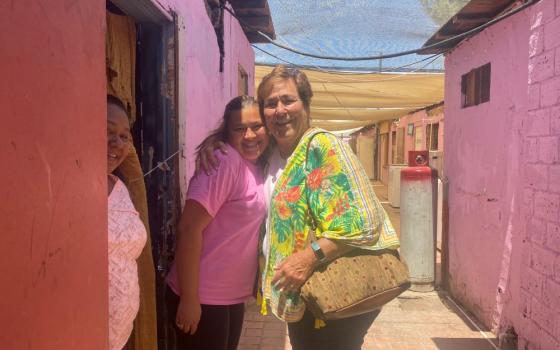Editorial
Agriculture holds a special place in the eyes of the church, said the U.S. Conference of Catholic Bishops in their 2003 document “Catholic Reflections on Food, Farmers and Farmworkers: For I Was Hungry and You Gave Me Food,” because “it touches all our lives, wherever we live or whatever we do. It is about how we feed our own families, and the whole human family.”
Holy Cross Br. David Andrews, former director of the National Catholic Rural Life Conference, now senior representative for Washington’s Food and Water Watch, on Page 14 spotlights two approaches to growing food both here and abroad that now compete with each other, an industrial and a holistic one. The industrial approach involves a high-tech, centralized, commercialized approach to growing food, while the holistic approach calls for sustainable, ecologically friendly practices, with an emphasis on the viability of medium-size and small family farms.
President Obama can set a new course in domestic food and agriculture policies. His selection of agriculture secretary, Tom Vilsack, has received mixed reviews. Andrews is hopeful, though, we’ll move to saner policies, away from politically powerful and environmentally destructive large agriculture corporations.
Irish Columban missionary Fr. Sean McDonagh (Page 14) looks at the challenge of feeding the whole human family in a time of global economic crisis -- and in particular at the Vatican as a player in the debate over the role of biotechnology and genetically modified foods (pejoratively nicknamed “Frankenfoods”) in this effort.
The Holy See sends mixed signals. On Jan. 1, Cardinal Renato Martino, head of the Vatican’s Peace and Justice Council, said the responsibility for the food crisis is “in the hands of unscrupulous people who focus only on profit and certainly not on the well-being of all people,” and that a more just system of distribution, not the manufacture of genetically modified foods, is the key to addressing the world’s food problems.
Yet a proposed study week in May hosted by the Pontifical Academy of Sciences that’s designed to be an impartial debating place is weighted with agribusiness spokespeople.
Agricultural development experts Jesuit Frs. Roland Lesseps of the Kasisi Agricultural Training Center in Zambia and Peter Henriot, director of Zambia’s Jesuit Center of Theological Reflection, cite recent statements by church leaders in the Philippines, Brazil and South Africa, which they say express deep concerns based on practical experiences that an industrial approach would introduce a serious dependency of small-scale, mostly poor farmers on multinational corporations for seeds and complementary necessities, driving those farmers off the land and into already burdened urban areas. Biotechnology encourages a new form of colonialism.
A 2008 U.N. study that agriculture biotech companies were hoping would endorse genetically modified foods as the “silver bullet” to solve hunger and poverty concluded instead that organic, small-scale farming can deliver the increased yields needed, without industrial agriculture’s environmental and social damage.
Most of the world’s work is agriculture. Most of its poverty is rural.
We Catholics believe the Eucharist is source and summit of our life. Bread is the way God comes to us.
Without innovative and broad changes in food policies, economic crisis together with wrongheaded agriculture practices may set back progress on world hunger. Reliance on a fossil-fuel-dependent, high-tech industrial food system is probably not the best way forward, both here and elsewhere.
Printed in the National Catholic Reporter, February 20, 2009.



